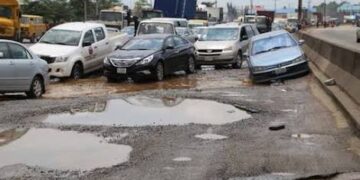Nigeria’s Minister of Power, Adebayo Adelabu, has disclosed that at least 150 million Nigerians now enjoy access to stable electricity, even as about 80 million citizens still struggle with inadequate power supply.
Adelabu made this known on Thursday while speaking at the 2025 Ministerial Sectoral Update Conference in Abuja, where he provided updates on the country’s progress in the power sector.
According to the Minister, Nigeria’s participation in the World Bank and African Development Bank’s “Mission 300” project has played a significant role in the country’s improving electricity access. The initiative targets extending electricity access to 300 million Africans by the year 2030.
“The compact sets ambitious goals to enhance electricity access, increase renewable energy adoption, and improve clean cooking solutions for millions of Nigerians. That is Mission 300, and we are making good progress on this,” Adelabu stated.
He added, “I’m happy to tell you that out of the 300 million Africans that the World Bank and AfDB aim to reach, Nigeria is on course to account for no less than 25 per cent, which translates to about 75 million Nigerians. When we presented our compact, they agreed with us.”
While highlighting the scale of progress, Adelabu noted: “As it is today, Nigeria, a country with about 240 million people, has access for 150 million people already, while about 80 million lack access to adequate electricity.”
Despite the milestone, the Minister emphasized that mere access isn’t enough. “The real challenge lies in the stability and affordability of electricity. That’s how we measure reliability. We must ensure that those who have access enjoy consistent and affordable power,” he stressed.
Adelabu’s remarks follow earlier claims in January where he revealed that power generation in Nigeria increased by 30 percent in 2024.
The Minister reiterated the government’s commitment to ongoing power sector reforms aimed at bridging the electricity gap for millions still left out, particularly in rural and underserved areas.

























